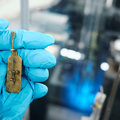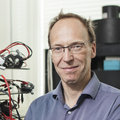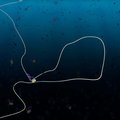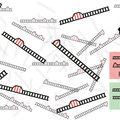Archive
22 March 2018
2018 Stockholm Water Prize for TU Delft biotech pioneer Mark van Loosdrecht
Professors Mark van Loosdrecht (Delft University of Technology) and Bruce Rittmann (Arizona State University) are named the 2018 Stockholm Water Prize Laureates for revolutionizing water and wastewater treatment. By developing microbiological processes in wastewater treatment, they have demonstrated the possibilities to cut costs, reduce energy consumption and even recover chemicals and nutrients for recycling. Their pioneering research and innovations have led to a new generation of energy-efficient water treatment processes that can effectively extract nutrients and other chemicals – both valuable and harmful - from wastewater.
21 March 2018
Mystery of superior Leeuwenhoek microscope solved after 350 years

Researchers from TU Delft and Rijksmuseum Boerhaave have solved an age-old mystery surrounding Antonie van Leeuwenhoek’s microscopes.
19 March 2018
Challenging the physical limits of a computation
Researchers from Delft University of Technology, in collaboration with the University of Zaragoza, have now erased and stored one bit of information encoded in a quantum nanomagnet while measuring the amount of energy dissipated in the process.
02 March 2018
Wind energy: driving down costs

Despite its recent growth, there’s still a lot of room for cost reductions in wind energy. That’s the view given by prof.dr. Simon Watson in his inaugural lecture at TU Delft on Friday March 2nd.
23 February 2018
Marnix Wagemaker receives Vici for battery research

Dr. ir. Marnix Wagemaker will receive a Vici grant from NWO. Wagemaker is getting this grant, which amounts to 1.5 million euros, to investigate the inner workings of batteries. Among other things, the researcher aims to find out why the storage capacity achieved by the current generation of batteries is lagging behind that which should theoretically be feasible. An additional 250.000 euros of in-kind contributions will be provided by companies that are involved in the research.
22 February 2018
Loops, loops, and more loops: This is how your DNA gets organised

Researchers from the Kavli Institute of Delft University and EMBL Heidelberg now managed for the first time to isolate and film and witnessed—in real time—how a single protein complex called condensin reels in DNA to extrude a loop.
15 February 2018
Programming on a silicon quantum chip
Quantum technology makes a great leap forward. While scientists can control a few qubits with great reliability, it doesn’t yet look like a real computer. Useful quantum chips require programmability: the ability to perform an arbitrary set of operations. Scientists from QuTech in Delft have now realised a programmable two-qubit quantum processor in silicon successfully implementing two quantum algorithms. They have published their work in the magazine Nature.
15 February 2018
Virtual tour of the catalysis lab
The new industrial catalysis lab is still under construction, but a few colleagues were already able to go for a walk inside the building last Monday. In 3D virtual reality, that is. A nice and very useful experience, as it turned out!
07 February 2018
Mathematics explains why Crispr-Cas9 sometimes cuts the wrong DNA

The discovery of the Cas9 protein has been of great value to medical science. It has simplified gene editing tremendously, and may even make it possible to eliminate many hereditary diseases in the near future. Using Cas9, researchers have the ability to cut DNA in a cell to correct mutated genes, or paste new pieces of genetic material into the newly opened spot. Initially, the Crispr-Cas9 system seemed to be extremely accurate. But unfortunately, it is now apparent that Cas9 sometimes also cuts other DNA sequences similar to the exact sequences it was programmed to target. Scientists at Delft University of Technology have developed a mathematical model that explains why Cas9 cuts some DNA sequences while leaving others alone.
01 February 2018
'Microbial Physiology and Fermentation Technology' course celebrates 30th birthday
This year, BioTech Delft organised the Microbial Physiology and Fermentation Technology course for post-graduates for the 30th time.